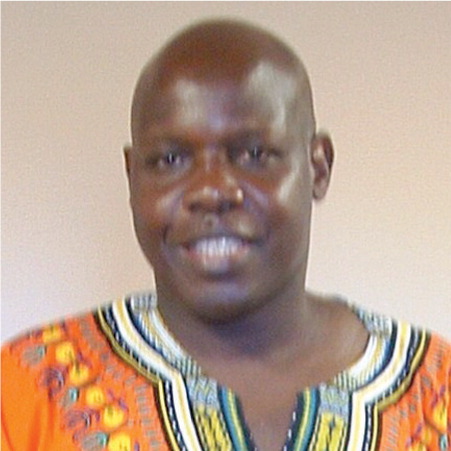
Am Fam Physician. 2011;84(7):752

I am a religious missionary priest. In 1998 I was sent to work in mission in the northwestern part of Uganda, Africa. One Sunday morning during my homily, I was feeling unnecessarily thirsty. was also going to the bathroom often, and I knew something was wrong with me. It was not surprising to me when that following Monday morning the health assistant told me that my test results showed that I had diabetes. I went to a mission hospital where was admitted for one month, and the doctor prescribed insulin to lower my blood sugar level, which had reached 400.
I moved from Uganda to the United States in 2003. I remember my first encounter with my physician when he told me, “If you follow my advice you will be able to control your diabetes because there is a big difference in the way we treat diabetes in the United States and in Uganda. I want you to control your diet, lose weight, and exercise.”
I took my doctor's advice to heart because my desire was to be better and, if possible, discontinue the insulin injections that I didn't like. I decided to exercise every morning on the elliptical machine, and sometimes I go bike riding in the evening. As time went on I also joined a gym, where I exercise for an hour at least four times a week. I eliminated desserts from my diet and went for healthy foods, including more vegetables, poultry, and water. In less than a year, my weight dropped from 208 to 190 pounds, and my diabetes test (A1C) went down to 6.4, which is considered almost normal. As my health records showed positive improvement, my doctor prescribed pills instead of insulin. Eventually, I didn't need pills to control my sugar levels, only a healthy diet, weight loss, and exercise.
During one of my visits back home, my family and friends couldn't understand why I looked so lean. By my people's standard and thinking, being fat is a sign of good eating and health, so they were concerned that I was sickly or poorly fed. I reassured them that the reason for my sickness with diabetes was basically attributed to my being fat, and that I am actually better off lean! I wish other persons with diabetes would be more prudent and change their behaviors to include more exercise, diet changes, and weight loss instead of just trusting their pills.—v.o.
COMMENTARY
I wonder if I benefit more from being this patient's family doctor than he benefits from my advice. We have talked a lot over our years of “health partnership” about the differences in culture between Uganda and the United States, especially the disparity in resources and the contrasting values. No patient can surpass V.O. in his respect for my knowledge and caring. He demonstrated this by taking my advice to heart and making inspiring changes in his lifestyle (and his A1C), especially when weight loss in Uganda can be interpreted as illness.
